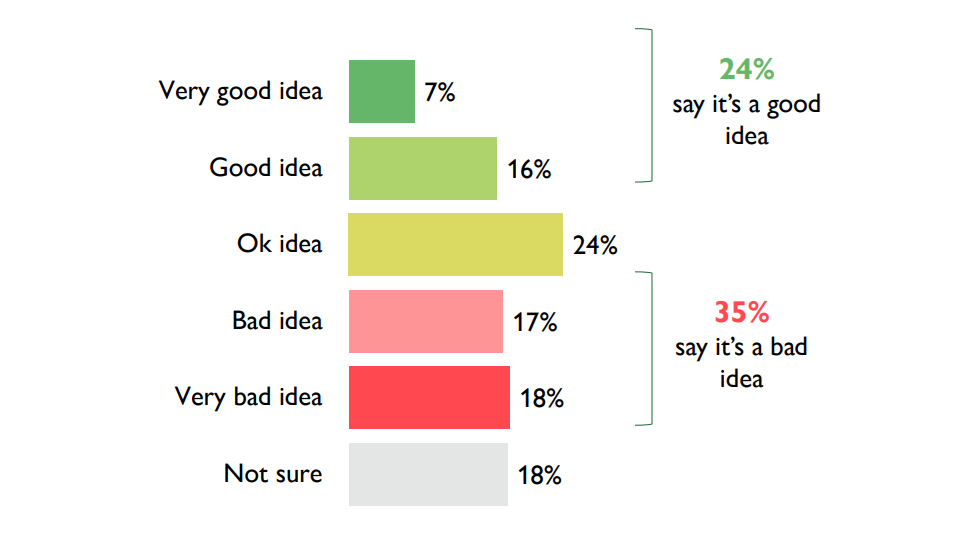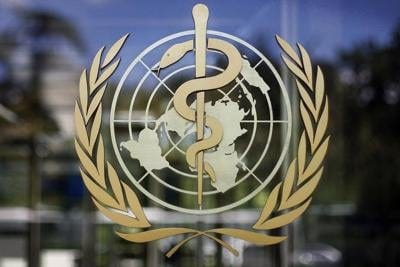You’re reading the web version of The Weekly Dose, our newsletter on health care and medical news. Sign up to get it next Sunday.
Hello Healthwatchers! 👩⚕️👨⚕️
This week brings us a series of stories highlighting some key debates shaping the health landscape. Let’s see what’s happening.
ERs clogged by patients avoiding de-rostering
A growing trend has patients flocking to emergency rooms for minor issues, driven by the fear of being de-rostered—or dropped—from their family doctor's practice for seeking care elsewhere; at walk-in clinics or urgent care centers.
Why it's important: Doctors may opt to de-roster patients who seek care from other providers to avoid financial penalties tied to provincial funding models. These policies are inadvertently pushing patients towards emergency rooms for issues that could be addressed within primary care settings, increasing ER congestion.
The situation reveals a clear need for communication between provinces and different levels of healthcare to make sure patients can receive care within appropriate settings, without incurring administrative penalties for financially-strapped family doctors. Such penalties not only strain limited emergency resources but compromise patient wellbeing by potentially delaying necessary medical attention.
Read more...
Canadians weigh in on capital gains tax changes
Abacus polling commissioned by the CMA suggests that a significant number of Canadians share the CMA’s fears that the changes could worsen access to family physicians.
Why it's important: About 58% of Canadians are aware of the proposed tax changes, and a substantial number (35%) oppose them, citing adverse effects on healthcare accessibility.
Data suggests that revisions to the tax changes are favored by many, with 60% supporting either an outright reversal or a specific carve-out to avoid negative impacts on healthcare providers who operate community-based clinics. These sentiments are driven by concerns that the tax changes could lead to longer wait times and a reduction in the number of practicing family physicians—a key issue given the existing challenges in accessing timely medical care in Canada.
Read more…
Surveillance and vaccine developments in response to H5N1
As H5N1 continues to spread in U.S. cattle, innovative monitoring methods like analyzing store-bought milk are being scaled up. Researchers have successfully used retail milk to detect the virus and track changes in its genetics, presenting an alternative to traditional methods hindered by farmers’ reluctance to test cattle directly.
Why it’s important: In Canada, the CFIA has tested 303 samples of retail milk, all of which returned negative results for the virus.
Alongside these surveillance efforts, the pharmaceutical sector is gearing up. Moderna and Pfizer are in advanced talks with the U.S. government to develop mRNA-based vaccines for H5N1. This follows a significant market reaction which saw big spikes in share values for these and other vaccine-makers. The U.S. is also converting its existing vaccine stockpiles to be ready for immediate deployment, if necessary.
Read more…
Global Pandemic Treaty hits roadblocks amid international disagreements
After over two years of negotiations, the effort to draft a global pandemic treaty has stalled. Discussions facilitated by the WHO have aimed to forge a global cooperation plan for future pandemics.
Why it's important: The treaty sought to address vaccine distribution disparities between nations, described by Tedros Adhanom Ghebreyesus as a "catastrophic moral failure." Deep divides persist over issues like the sharing of data and international technology-transfers, which are critical for developing timely treatments and vaccines.
Negotiators have struggled with concerns over national sovereignty and the enforcement of treaty provisions, making it difficult to finalize a draft for ratification at the upcoming World Health Assembly. While some countries argue for stringent controls and equitable resource sharing, others, including several U.S. senators, worry about the implications for IP rights.
Read more...
Rural municipality fights for hospital services, vowing legal action
West Grey Mayor Kevin Eccles is spearheading a legal challenge against the closure of the in-patient unit at Durham Hospital. The decision by the health network to reallocate beds to other regional facilities has sparked community backlash and prompted calls for Ontario’s Health Minister to intervene.
Why it's important: I love a local story — this one hints at the increasingly tense climate between rural areas and policymakers over the allocation of health system resources. Advocates are pushing for a provincial moratorium on hospital closures.
The closure not only threatens local healthcare access but also increases emergency response times and overall community wellbeing. Critics argue that solutions exist if the political will is there, pointing to the recent historical precedent of a provincial moratorium on rural school closures, first enacted during the Wynne-era, and kept in-place by the Ford government.
Read more…
As the planet warms, tropical diseases spread north
As temperatures rise across Canada, the threat from diseases like Lyme and mosquito-borne illnesses is increasing. Recent years have seen a dramatic surge in Lyme cases, which jumped over 1,000 percent in a decade.
Why it's important: The explosion of tick populations and the spread of once-exotic mosquito species capable of transmitting dengue and yellow fever signifies a northward shift in the tropical disease frontier. At some point, this is going to present Canadian health systems with big and unique challenges.
Public Health officials warn that these changes could lead to increased occurrences of food-borne and vector-borne diseases, straining public health resources and requiring new strategies for disease prevention and control. The adaptation of vectors and pathogens to climate disruption means we will need updated—and integrated—surveillance systems to manage these risks, and soon.
Read more…
Another week, another wealth of updates to ponder! As policymakers and health advocates, your actions can drive meaningful change. Thank you for reading and for your comittment to staying informed. Let's use our collective power to effect positive outcomes in healthcare, for all Canadians.
Thanks for joining me this week 😊
Nick Tsergas
National Health News Editor
Canada Healthwatch
[email protected] | canadahealthwatch.ca





